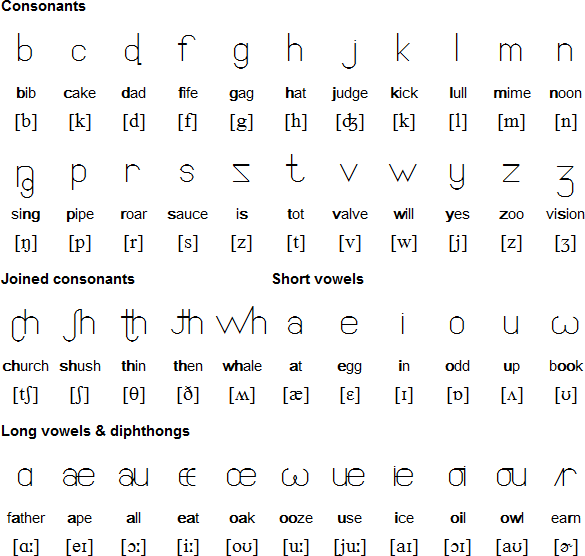The Pitman Initial Teaching Alphabet (i.t.a.) was invented by Sir James Pitman, grandson of the inventor of Pitman shorthand. It was first used in a number of British schools in 1961 and soon spread to the USA and Australia.
It is designed to make it easier for English-speaking children to learn to read English. The idea is that children first learn to read using the i.t.a. then are introduced to standard English orthography at the age of seven. Opinions vary on the efficacy of the i.t.a. and it never became a mainstream teaching tool.
The main problems of using the i.t.a. include the fact that it is based on Received Pronunciation, so people with other accents find it difficult to decipher; the lack of written materials, and the transition to the traditional orthography, which some children found difficult.

I.T.A. Foundation - an organisation which promotes the use of the i.t.a.
http://www.itafoundation.org/
i.t.a. - the advantages and disadvantages of the Initial Teaching Alphabet
http://www.foolswisdom.com/~sbett/ita-eval.htm
BBC News article on the i.t.a.
http://news.bbc.co.uk/1/hi/uk/1523708.stm
Activities for learning the (English) alphabet
http://www.smart-kid-educational-games.com/teaching-the-alphabet.html
Benjamin Franklin's Phonetic Alphabet, Deseret, Dialectal Paleotype, Interbet, Pitman Initial Teaching Alphabet, Quikscript/Read Alphabet, Shavian, Simpel-Fonetik, Unifon
Page last modified: 23.04.21
[top]
You can support this site by Buying Me A Coffee, and if you like what you see on this page, you can use the buttons below to share it with people you know.

If you like this site and find it useful, you can support it by making a donation via PayPal or Patreon, or by contributing in other ways. Omniglot is how I make my living.
Note: all links on this site to Amazon.com, Amazon.co.uk
and Amazon.fr
are affiliate links. This means I earn a commission if you click on any of them and buy something. So by clicking on these links you can help to support this site.
[top]